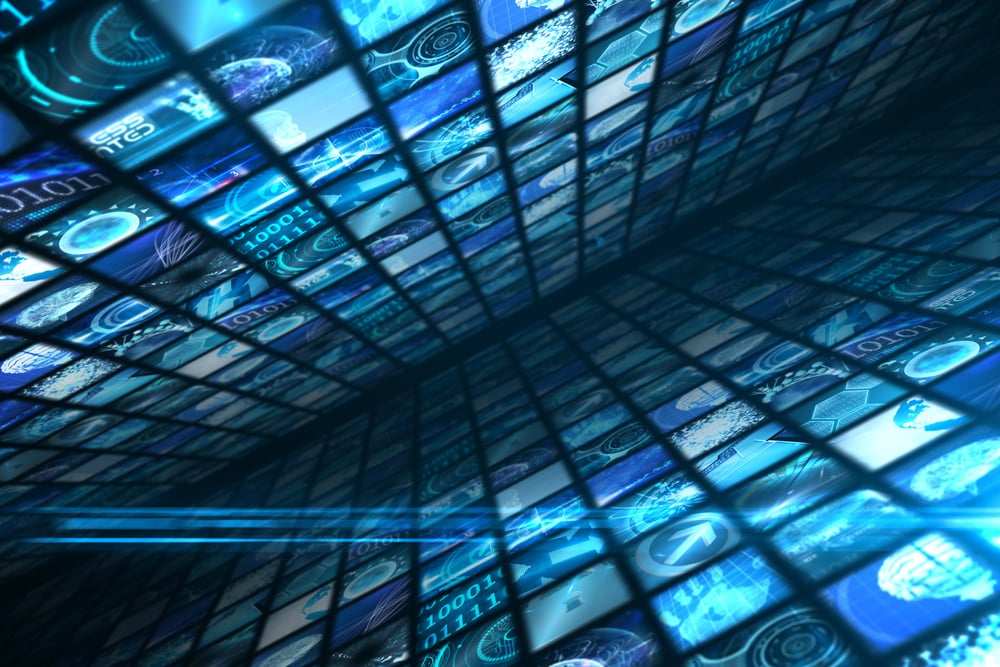The Future of PPC Advertising in an AI-Driven World

Learn about the future of PPC in an AI-Driven world and how to stay ahead of the competition.
In the ever-evolving digital marketing world, keeping pace with innovation isn’t just about adopting new tools—it’s about anticipating seismic shifts in how audiences interact with brands.
In a recent Marketing Against the Grain episode, Kieran Flanigan highlighted an emerging trend that’s set to redefine everything we know about digital advertising: AI agents taking the lead in consumer decision-making.
As a leading B2B PPC agency, in this blog we investigate what this groundbreaking concept means for marketers—especially those navigating the B2B software space—and how you can stay ahead of the curve.
The Shift from Human Consumers to AI Agents
Traditionally, search engines like Google have built empires by serving PPC ads to humans searching for answers. But in an AI-first future, consumers may delegate research and decision-making entirely to smart agents designed to filter, evaluate, and purchase on their behalf.
What does this mean? The battleground for attention could shift from the end-user to their AI representative. Instead of vying for human eyes, brands will be bidding for the approval of programmed, data-driven decision-makers.
How AI Agents Will Reshape Paid Advertising
Here’s a snapshot of what this AI-driven future could look like:
The New Decision-Maker: AI agents will choose products and services based on specifications like cost, quality, and functionality—not branding or emotional appeal.
Agent-Centric Bidding: Instead of displaying paid ads for humans to scroll through, brands may compete directly for agent algorithms' consideration. For example, a travel AI agent could compare flight options, prioritising those with the best fit for the user’s needs.
Minimal Human Interaction: With AI handling everything from research to payment, the traditional customer journey involving website visits and multiple brand touchpoints may shrink to just a single automated purchase.
What This Means for B2B Software Marketers
The B2B sales cycle is already complex, involving multiple stakeholders, lengthy timelines, and data-heavy evaluations. The introduction of AI agents could streamline—but also disrupt—this process.
Key challenges and opportunities include:
Spec-Driven Differentiation: Your competitive edge will depend on how well you meet spec-driven needs. If agents focus purely on feature sets and pricing, traditional brand narratives may take a backseat.
Paid Search Redesign: PPC strategies will need to evolve to influence AI preferences. Ad creatives will be replaced by data-rich bid submissions targeting an algorithm’s programmed criteria.
Agent-Optimised Content: Website structures may need reworking to prioritise structured data formats that agents can easily parse. Forget “fluffy” content—think schemas, clear product matrices, and transparent pricing tables.
The Role of Prompts in AI-Driven Research
AI prompts will play a pivotal role in shaping what agents prioritise. For example, Google’s Gemini AI is already capable of producing research summaries from multiple sources and feeding insights back to users without requiring clicks.
This shift means crafting content optimised for “deep research” requests will be crucial for brands seeking to appear in these compiled reports.
AI Agents Beyond Buying Decisions
AI agents won’t stop at selecting software—they’ll also help users navigate tools in real-time. Imagine onboarding an AI-powered CRM system and receiving live, step-by-step guidance from an agent embedded within the software.
Flanigan’s example of Google Gemini demonstrates how these tools could become indispensable operational partners, not just purchasing assistants.
How Marketers Can Prepare for the Future of PPC Advertising
Staying competitive in an agent-first ecosystem will require bold changes. Here’s where to start:
1. Design Agent-First Digital Experiences
Ensure product and service information is easily accessible for AI systems. Structured data, comprehensive FAQs, and comparison grids will be your new best friends.
2. Master Prompt Engineering
Learn how to craft prompts that ensure agents interpret your data accurately. The more precise your content’s inputs and outputs, the better your chances of landing in an agent’s shortlist.
3. Reimagine the Sales Funnel
If agents replace humans at multiple stages of the journey, your funnel may need fewer human touchpoints but more behind-the-scenes optimisation. Consider how you can support both human stakeholders and AI agents in parallel.
Final Thoughts: Navigating a New Reality
The rise of AI agents presents both a challenge and an opportunity for B2B marketers. The emphasis may shift from human emotion-driven narratives to data-backed clarity and efficiency.
However, there’s still room for creativity—by creating transparent, solution-driven experiences, your brand can remain not just relevant but indispensable in this new landscape.
The future isn’t about resisting automation—it’s about leveraging it. At Angelfish Marketing, we’re a specialist B2B PPC agency committed to keeping you one step ahead. Whether you’re refining your paid strategy or optimising for AI-first search, we’re here to guide you through the next era of digital marketing.
Ready to future-proof your strategy? Let’s talk.

About the Author: Richard Stephens
AuthorRichard is the director and co–founder of Angelfish Marketing, a digital marketing agency specialising in inbound marketing for B2B SME’s.
Connect on LinkedInReady to Unlock AI SEO for Your Business?
AI SEO isn’t coming — it’s already here. Capture high-intent traffic and build sustainable pipeline growth.
Get Your Free Audit

